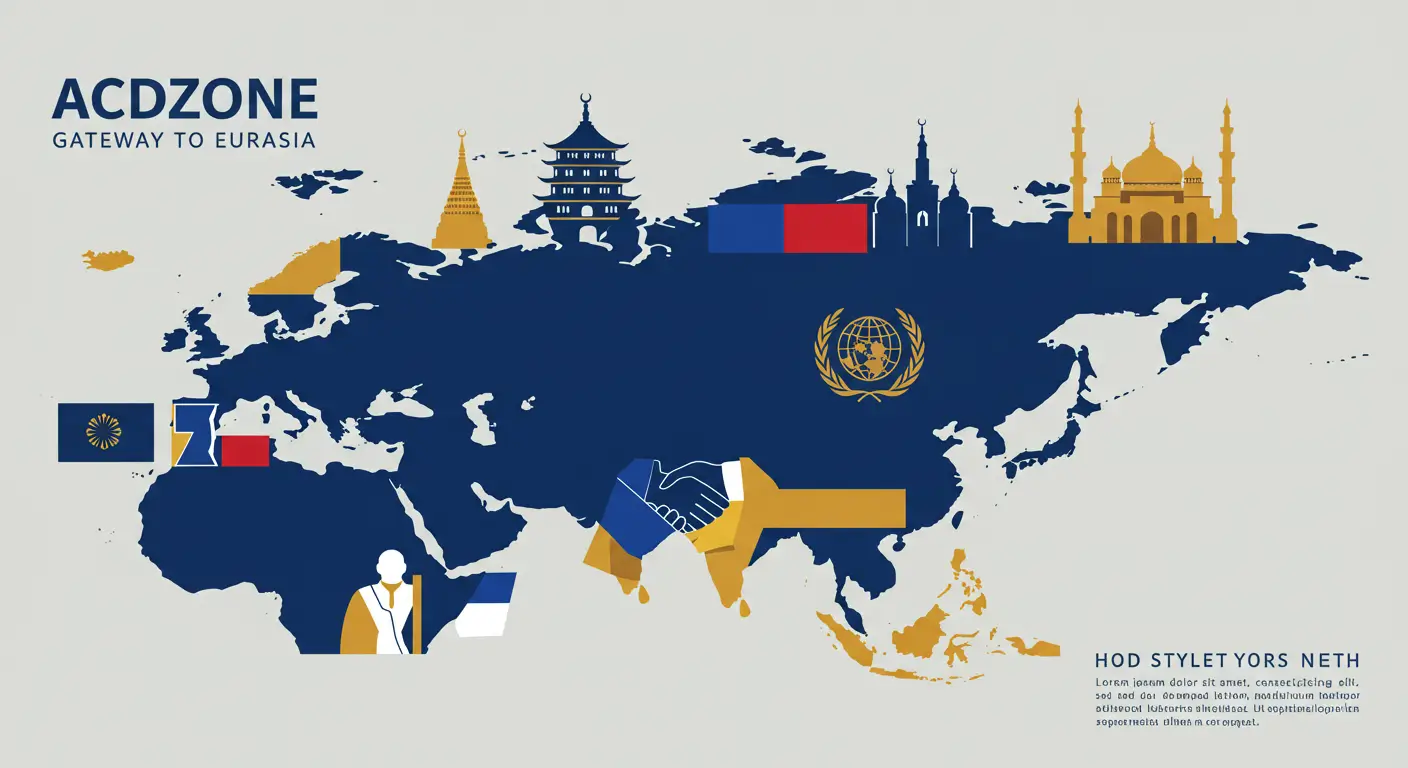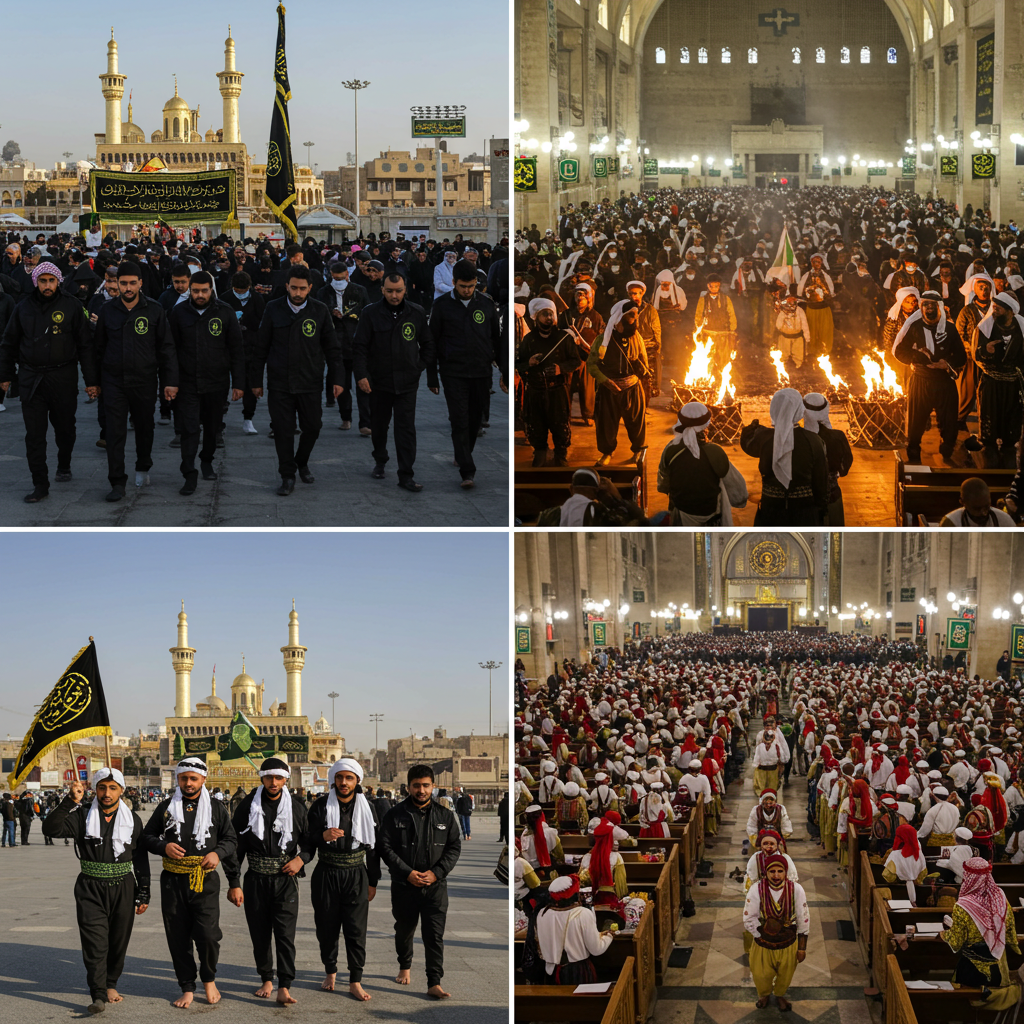Festivals and Rituals in Iraq: Faith, Culture, and Shared Identity
Introduction
Festivals and ceremonies in Iraq reflect the country’s rich religious and cultural diversity. From Shi’a pilgrimages to Kurdish celebrations, and from Christian rituals to Mandaean purifications, these occasions are not only traditions—they are expressions of identity, unity, and social resilience.
Religious Observances
Religion deeply shapes Iraq’s calendar of festivities, practiced by Shi’a, Sunnis, Kurds, Christians, Yazidis, and Mandaeans.
-
Arbaeen
One of the largest religious gatherings in the world, Arbaeen draws millions of pilgrims walking from Najaf to Karbala. It’s not only a spiritual ritual but a powerful symbol of Shi’a identity, resistance, and communal solidarity. -
Ramadan and Eid al-Fitr
Observed nationwide, the holy month of Ramadan includes evening iftar meals, collective prayers, and late-night gatherings. Eid al-Fitr marks the end of Ramadan with family visits, gift-giving, and acts of charity. -
Ashura
On the 10th of Muharram, Shi’a communities, particularly in Karbala and Najaf, commemorate the martyrdom of Imam Hussein with large-scale mourning ceremonies, public recitations, and symbolic rituals such as chest beating (latmiyyat).
Ethnic and Local Celebrations
-
Kurdish Newroz
Celebrated across the Kurdistan Region on March 21, Newroz marks the new year with folk dances (Halparke), bonfires, colorful traditional clothing, and family picnics in nature. -
Yazidi Red Wednesday (Çarşema Sor)
Held in Lalish, the Yazidi spiritual center, the festival involves candle lighting, animal sacrifice, prayers for peace, and communal feasting.
Social and Family Ceremonies
-
Weddings
Weddings are major social events featuring live music, traditional dancing (Dabka), elaborate feasts, and strong participation from extended families. In the Kurdistan Region, traditions like “Sharzor” and, in the south, “Aqiqah” ceremonies for newborns remain important. -
Birth, Naming, and Circumcision
Childbirth rituals include family gatherings, reciting religious songs, and festive meals. These events symbolize the family’s formal responsibility for the child within the community.
Minority Rituals
-
Christian Celebrations
Iraqi Christians celebrate Christmas and Easter in churches across Baghdad, Mosul, and Erbil, combining ancient liturgical traditions with modern cultural elements. -
Mandaean Ceremonies
The Mandaeans, followers of a Gnostic religion, perform water-based purification rituals in the Tigris River, especially during their major religious events, symbolizing spiritual renewal.
Mourning and Commemorations
Mourning in Iraq is both religious and communal. Funerals often involve Qur’an readings (Al-Qiraa), large gatherings at homes or mosques, and public expressions of grief.
Women play a central role in mourning traditions, especially through recitations and ritual lamentation, helping bind communities in shared sorrow.
Social Cohesion Through Ritual
In a country long marked by conflict, festivals and rituals serve as a means of national healing and unity. Iraqis of all backgrounds frequently take part in each other’s celebrations, forming a shared cultural fabric and reinforcing national solidarity.
Conclusion
The festivals and ceremonies of Iraq are more than just traditions—they are expressions of cultural depth, spiritual devotion, and societal connection. These rituals ensure that Iraqi identity remains vibrant, diverse, and deeply rooted in both past and present.





No comment